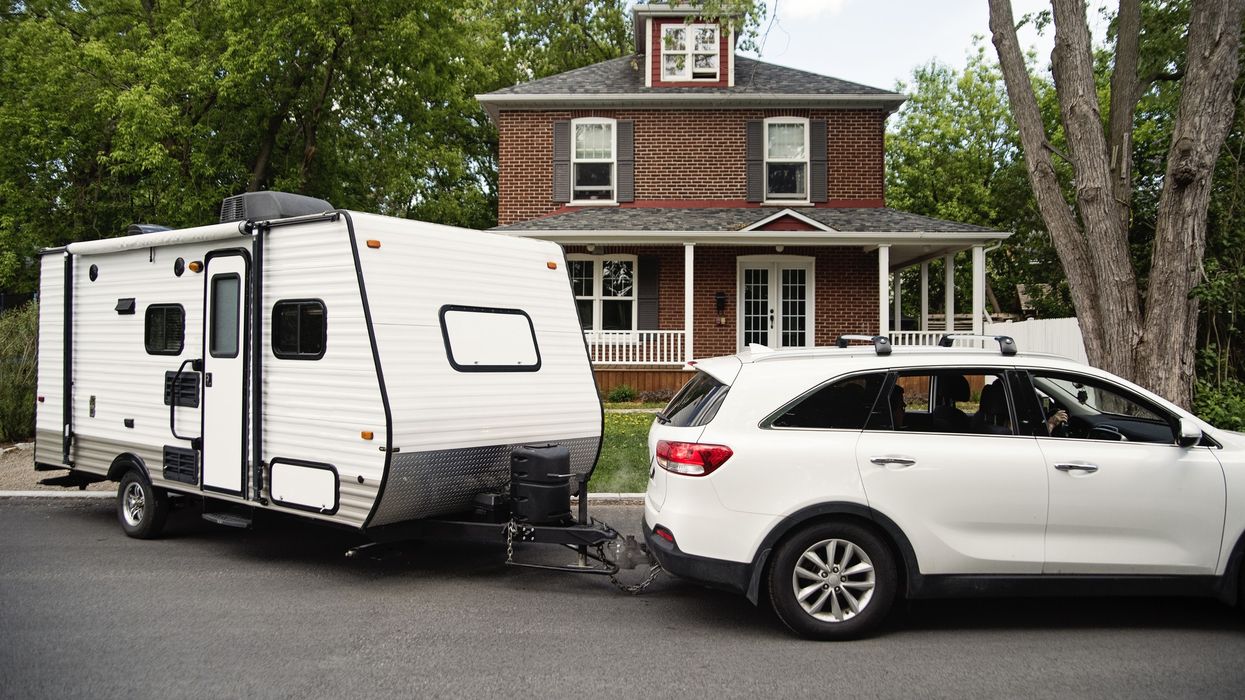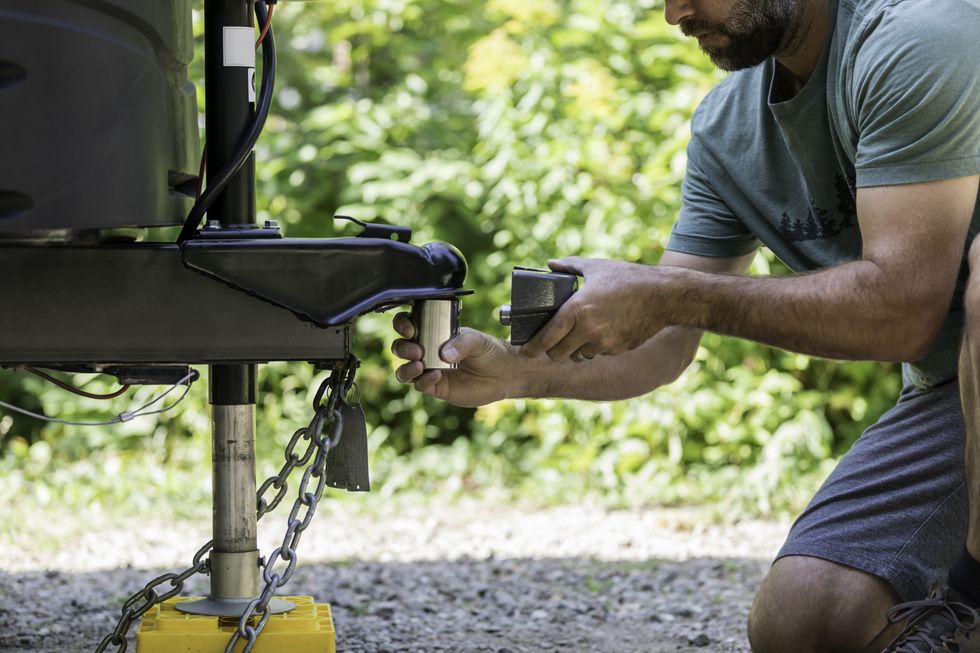DVSA issues urgent warning for motorists to check caravan before driving or risk fines

Drivers are being warned to check their caravans before setting off
|GETTY

Motorists need to follow guidance on speed limits being different when towing a caravan
Don't Miss
Most Read
Latest
Drivers are being warned of the rules they need to follow when towing a caravan or trailer or they could find themselves in a dangerous position.
Motorists who want to get away for a last-minute trip before the temperatures drop and winter sets in have been urged to ensure they are safe.
Writing on X, formerly known as Twitter, the Driver and Vehicle Standards Agency, said: “Want to get away for a few days now that schools have re-started?
“Check out our advice on towing and motorhomes,” followed by a link to the Save Driving for Life campaign website.
WATCH NOW: Suella Braverman on speeding
The first thing drivers are urged to check is to ensure their insurance policy allows them to tow a trailer or caravan as not all policies will cover this.
Even if a motorist has comprehensive car insurance, it likely won’t be covered, according to Confused.
Although the policy covers the car, many insurers place trailers and caravans on their list of exclusions.
The road safety organisation suggests carrying a spare wheel for the trailer or caravan and other equipment so minor repairs can be made.
The vehicle’s V5C logbook will contain details about the maximum size and noseweight of a caravan that the car can safely tow.
Motorists should always ensure they know how to correctly couple and uncouple a trailer or caravan, with instructions on how to do so in the vehicle handbook.
The blog states: “Towing a trailer or caravan will create extra blind spots around your vehicle.
“Make sure that you check carefully all around you before manoeuvring your vehicle.
“You may not be able to use your interior mirror so fit side mirrors with extended arms to help you see past the caravan or trailer.”
Motorists will also need to adhere to lower speed limits when on the road if they are towing a trailer or caravan.
On a dual carriageway or motorway, the maximum speed is 60mph, while single carriageways carry a 50mph speed limit. If they do not follow this guidance, they could be hit with speeding fines from the police.
Similarly, if it is a wider motorway with three or more lanes, towing vehicles must avoid the right-hand lane.
Drivers are advised to give themselves three times the normal distance and time to overtake safely and always more space given the extra vehicle length.
The Safe Driving for Live campaign also warns about the caravan “snaking”, which is when the trailer begins to swerve side to side when driving.
LATEST DEVELOPMENTS:

Car owners can find their towing requirements in their vehicle logbook
GETTY
People should ease off the accelerator slowly and reduce their speed gradually until the snaking stops.
As with any long journey, road users are encouraged to check the weather forecast before leaving to ensure they will be safe and comfortable behind the wheel.










